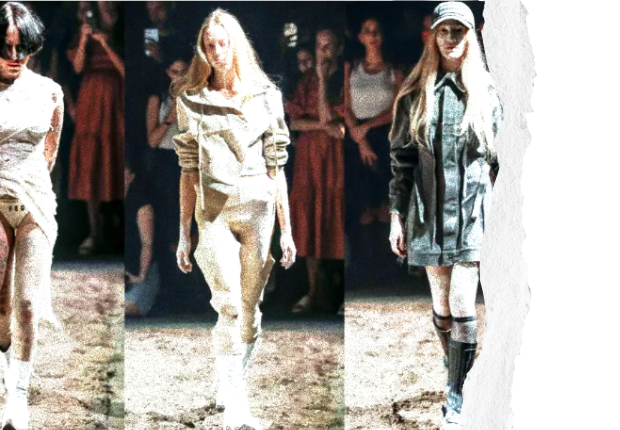Interview with Elena Velez
Elena Velez is an American fashion designer and entrepreneur from Milwaukee, Wisconsin. Her work is known for its non-traditional synthesis of metalwork and high fashion. Velez graduated from Parsons School of Design and completed her studies at Central Saint Martins in London. Of Puerto Rican heritage but raised in Milwaukee, Wisconsin, Velez claims that the industrial nature of her non-traditional upbringing as the only child to a single mother who is a ship’s captain on the Great Lakes influenced her current artistic identity, one which she says draws heavily on the relationship between femininity and force. Her company was subsequently featured in Forbes for its work with Midwestern makers and mission to ‘democratize resources and recognition’ for artists outside of traditional creative capitals. Velez is the Council of Fashion Designers of America’s 2022 Emerging Designer of the Year, Elle Magazine’s 2023 Women of Impact recognizé, a 2022 Vogue Fashion Fund winner, recipient of the Fashion Trust US Sustainability Award, and is listed on Dazed 100 for 2023.
Thank you for joining us, Elena. Your latest show, at New York Fashion Week, was called “The Longhouse”. This is a term familiar to many sensitive young men on the dissident right. How did you first encounter it and what does it mean to you and your work?
I think a lot of young creatives like me who were blackpilled on leftism, stemming from the anticlimax of the Bernie Sanders campaign, found solace in the consoling embrace of the post-woke avant garde. One of the most popular and searing conceptions defined within the movement is obviously “the Longhouse.” I was initially really inspired by the prophetic urgency, veracity, and multisensory invocations described by Lomez, in “What Is The Longhouse?”, published in First Things. It’s just one of those irresistible avatars that are fun to dissect and rearticulate in different mediums: concrete enough to have a form to build with, nebulous enough to exist subjectively. My approach was never really meant to challenge or add to the hypothesis intellectually inasmuch as it was simply to materialize the sentiment of escape from the Longhouse.
We on the dissident right like to say that the world is one giant longhouse these days. Do you think the fashion world is a part of this too? Does it offer its own unique resources to escape the longhouse, as it were?
I don’t think any institution in the West is free from the inevitable self-cannibalisation that the Longhouse demands. We’re all spiritually crushed up against the walls of possibility, forfeiting the courage to imagine all of the vast and inconceivable opportunities of outward expansion, instead lapsing into a sort of incestuous and inward perversity of progress. I think escaping the Longhouse is an endurance sport. It requires keeping your wits about you, which admittedly, an introspective creative practice can be useful towards.
Vogue recently described you as an “antiheroine”, someone who “enjoys creating discomfort.” How do you feel about this?
Lazy albeit true. The discomfort I accept is the righteous discomfort of searching and fearless moral inventory. I think it’s pretty narcissistic and cynical to infer that the distress I enjoy is that of others.
One of the themes of your work is its situation in the places in which you have lived and worked — specifically the Midwest. You seem to be developing a sort of “fashion terroir” concept. Is this right? What makes a fashion designer from the Midwest different from a fashion designer from, say, New York?
My mom is a ship captain on the Great Lakes. I don’t come from money, culture, or entrepreneurship. My friends growing up were welders and blacksmiths, state-fair pageant queens… I don’t care to spend too much time self mythologizing — it’s confusing. I think I have this kamikaze-like confidence of someone up against insurmountable odds, who isn’t holding out for a big win but is certainly failing upwards at an impressive rate.
In his review of your recent Brooklyn fashion show for The Asylum magazine, a certain anonymous writer noted that one of your models resembled the Norse goddess Freyja. And it turns out that your daughter’s name actually is Freja. Is this a coincidence? How and why did you choose that name? Your son’s name is Atlas — surely that name has some significance too?
Pure coincidence. At least I’m consistent with my creative references! My husband is Scandinavian which probably offers a more banal explanation of this, but if I dig, I think that as a daughter of diaspora and divorce I just always felt so rootless and untethered to my own ancestral lore. I wanted my children to feel connected somehow to the fables and wonders of human origin. Maybe they’ll have an easier go of that insidious modern malaise with some sort of transcendental and archetypal inspiration…
Has motherhood altered your approach to your work?
Motherhood has made me more impatient, more anxious to expedite my success or failure. It’s also forced me to remind myself to always speak true, and in good faith.
One defining fissure on the current right is between those who believe our enemies — the so-called “Regime” — is a cult of death, and those who believe it is a cult of mere life. The former are typically religious traditionalists, particularly motivated by issues such as abortion, which they believe epitomizes the culture of death, while the latter are vitalists and futurists, who hope in their hearts for a world of sunlight and high ideals. Death, if I may say so, appears to be another theme of particular significance in your work. Is this right?
I don’t recognize a theme of death in my work. If that’s a meaningful distillation for someone who follows my collections, I won’t deny them it, but I love life and I want to live. I play a lot with really heavy thematic paradoxes around the dualities of good and evil, the Chiaroscuro and tragicomedy of seemingly post-apocalyptic modernity, but it’s in service of goodness. Or at least it is if I have anything to say about it.
You spoke eloquently above about your children. My own mother says that it’s a mother’s job to worry. Are you optimistic for the future? I’m wondering both in terms of your specific world, the fashion world, etc., and also generally. Does the potential for apocalypse motivate you personally and professionally?
We’re already living in some ancient NPC’s version of the apocalypse. Worrying is essentially paying tax on a debt that may never be collected. There will be beauty and meaning in this world for those with the courage and resilience to seek it — until the asteroid hits.
I might be wrong, but it’s also my privilege as a creative director (and more importantly my prerogative as a woman) to simply decide I’m right.
And, finally, what can we expect to see next from Elena Velez?
Ideally, inspiring meaningful exchange through my (painfully public) personal creative inquiry. Realistically, bankruptcy or cancellation.

































